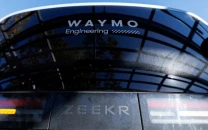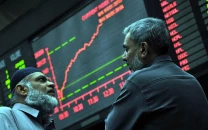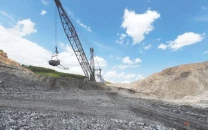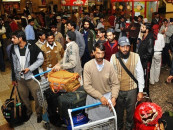Funds shortage may bring clean water project to a halt
The ministry of special initiatives has immediately sought Prime Minister Yousaf Raza Gilani’s intervention.

The ministry of special initiatives has immediately sought Prime Minister Yousaf Raza Gilani’s intervention, asking him to release an additional Rs5 billion for clearing the bills of contractors, said a senior official of the ministry.
For the current financial year, the government has allocated just Rs733 million for the project which is not sufficient keeping in view the scope of the programme.
If the contractors’ bills were not cleared, they could legally demand penal charges amounting to 16 per cent on top of due payments, a senior ministry official said.
Under the contract agreement, in case of delay the government is bound to pay penal interest to the contractors which will be equal to State Bank’s policy rate of 13 per cent plus three per cent additional charges.
The government has also quietly increased the cost of the project by 48.8 per cent to Rs23.5 billion from Rs15.8 billion. Sources said that earlier the cost was understated as the government had no idea about the cost of state-of-the-art plants. If the government did not release additional funds, the cost may further surge both on account of penalties and escalation in prices of plants and equipment.
Unable to boost revenues due to political compulsions, the government has kick-started an exercise to slash public sector development spending in the wake of worst floods in the country’s history. In this scenario, it may be a hard choice for the government to increase resources for a strategically important project.
Under the revised ‘Clean Drinking Water for All’ project, 6,035 water purification plants of different capacities, ranging from 500 to 2,000 gallons per hour, had to be installed - one each in every union council. However, since the beginning the project has been marred by delays and controversies.
Former president Pervez Musharraf planned the mega scheme in 2004 and handed it over to the ministry of environment. Initially, the authorities planned to install purification plants at district level at a total cost of Rs7 billion. Later, on allegations of corruption, the project was handed over to the ministry of industries, production and special initiatives and its cost increased to Rs15 billion.
In order to accommodate favourites, the government carved out the ministry of special initiatives in November 2008 and asked it to complete the project in three years.
The malpractices in the multi-billion-rupee project have already been echoed in the Public Accounts Committee.
The project is also facing delays at the implementation stage as well. Out of 6,035 filtration plants, around 1,200 have so far been installed. In spite of a passage of considerable time, only 18 per cent work has been completed in Khyber-Pakhtunkhwa due to fake bank guarantees submitted by the contractor against mobilisation of advances. Work has been lying suspended since then and only 200 plants could be installed against a plan of 1,100.
In Punjab too, the contractor had submitted fake bank guarantees against mobilisation advance and the government was forced to re-award the contract in June 2009.
In Sindh, so far 35 per cent work has been completed, whereas in Balochistan 85 per cent work has been done.
The project was conceived to control the spread of water-borne diseases. According to a study, up to 60 per cent patients in hospitals have problems related to hepatitis, diarrhoea and typhoid.
Water at these purification plants is said to be chemical-free as an ultra-filtration technology has been used in filter plants.
Published in The Express Tribune, August 31st, 2010.



















COMMENTS
Comments are moderated and generally will be posted if they are on-topic and not abusive.
For more information, please see our Comments FAQ